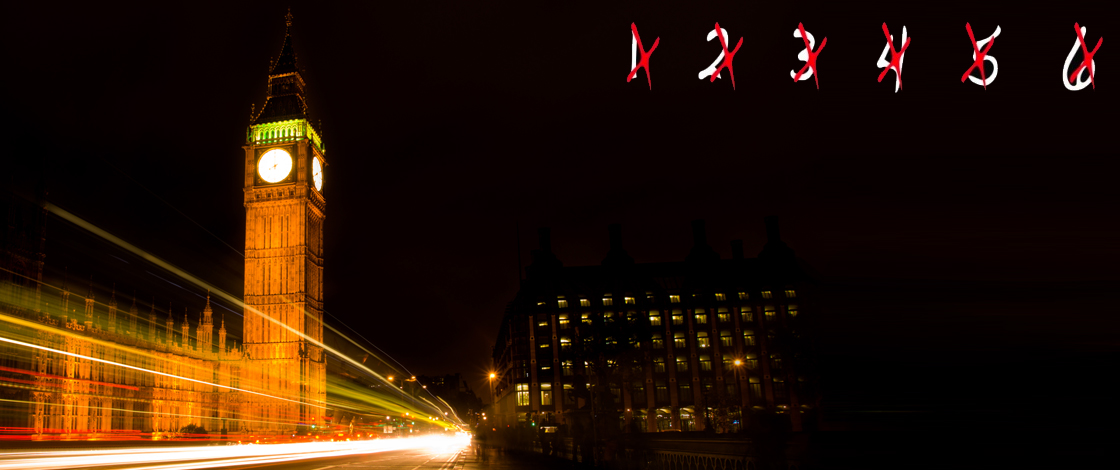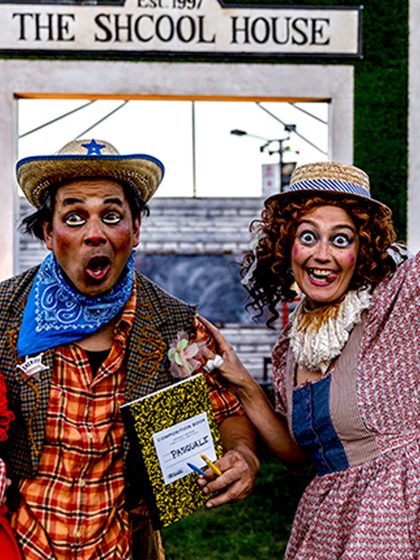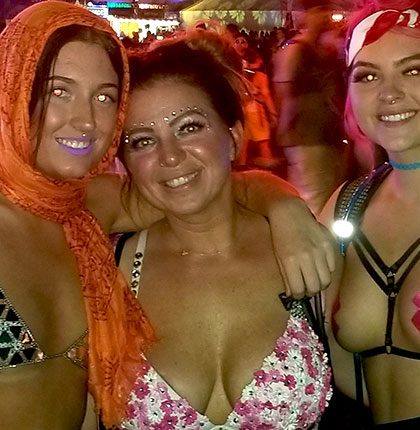6 Things the US Needs to Learn From Europe’s Club Scene

You’ll never really understand quite how dire US clubbing is until you go to Europe. On the surface, it seems like we have some really great things going for us. Output, Lot 613, Sound, and Spy Bar seem like bastions of US underground culture, but when they’re pitted against their counterparts in Berlin, Amsterdam, Paris and Ibiza, you start to see how the shackles of government interference and local gentrification are grating at the wrists of eager scenes that would be thriving under more lenient circumstances.
While our festival scene is arguably the best in the world, the quality of our club scenes pale in comparison. There are a lot of things that we could do to improve the standard of clubbing and nightlife across the United States. We spoke to some of Europe’s leading voices in the fight to preserve dance culture against waves of gentrification.
Stop Policing Everything

The United States seems caught up in the idea that its citizens require government-enforced rules to establish order. But evidence has shown that an abundance of unreasonable restrictions often leads to revolt. In Los Angeles in particular, a combination of early closing times, competitive radius clauses, and clubbers seasoned in more lenient scenes, has resulted in an illegal warehouse scene being its crown jewel. And as cool as illegal parties are, they’re not really contributing to the nightlife economy and have a natural aversion toward governing bodies.
Let the scene police itself a little more and empower the clubbers to act like responsible adults, and we can guarantee they will respond with maturity.
Form Coalitions

In hyper-competitive, capital-obsessed markets like Los Angeles or New York, it’s very difficult to imagine all of the shifty, slimy promoters getting together and working as a team for the good of the city. But that’s what they do in Berlin, and it is arguably the most important tool they have in keeping their scene the best in the world.
With former club and restaurant owner Lutz Leichsenring acting as the mediator and press spokesman for the Clubcommission in Berlin, the promoters and venue owners are being adequately represented on a political level and can even get discounts on vital services, like soundproofing and electrical installation.
“[Clubcommission is] a lobby organization that finds out what the needs and wants are of our members, and we work on them very effectively,” Leichsenring explains. “We are pretty deep in the political system; many of our executive board members are also part of the political parties, and I myself am part of the chamber of commerce. You can imagine how exotic I am there! But it’s very important to have open dialogue with the groups, like real estate businesses and the tourism board, to understand how we see things and how we would like to make things happen.”
This approach has established the Clubcommission as the archetypal armor for dance scenes under siege. When we met Leichsenring in his office in Berlin, he was preparing to welcome a group of representatives from the Keep Sydney Open campaign. While they could certainly learn a lot from the Clubcommission to help resuscitate their terminal scene, we should all be thinking about coming together and being proactive, as opposed to reactive, in this fight.
Appoint a Night Mayor or Night Czar

In response to the earliest rumblings of fabric’s impending closure, London’s newly appointed mayor, Sadiq Khan, announced himself a “friend of nightlife” and looked to Amsterdam for inspiration in the fight to save London’s £26bn nighttime economy.
Khan announced that the city of London would be appointing a “Night Czar”: basically, a mediator between the clubs, bars and restaurants, and the municipal government. The blueprint for this position was established by Amsterdam’s “Night Mayor,” Mirik Milan. Since being appointed in 2012, he has worked tirelessly to develop the Dutch capital’s thriving club scene.
“We are in a good position, because we get 50 percent of our money from city hall, and 50 percent of our money from entrepreneurs in nightlife,” Milan tells us. “That means that we listen to all sides: the clubs, the city, and of course the people of Amsterdam, who rarely have a voice in these situations.”
Milan has had tremendous success in this position and is widely regarded as the global authority on bridging the often vast gap between the club scene and the authorities. But Leichsenring, who is effectively Milan’s opposite number in Berlin, warns that without the requisite coalition of promoters, a lone Night Czar can’t just wave a magic wand and solve a scene’s problems.
“The Night Mayor is a top-down situation. Even if a scene says, ‘Yes, we would like to have someone like this,’ you have to remember that he is in part paid by the mayor,” Leichsenring explains. “But there is also a lot of risk attached to this solution. If your only hope is this one person, it can be a bottleneck. There must be an independent movement throughout the scene to develop an idea of what we are representing, and then you go to the Night Mayor to tell him what you’re trying to solve.”
24-Hour Licenses

In the mind of your petrified suburban mom in Flyoversville, USA, serving alcohol around the clock would result in maniacal bands of boozy louts swerving haphazardly through the streets and terrorizing innocent bystanders every Sunday morning. The whole world would be wasted, and the Absolut apocalypse would inevitably ensue.
Well, in the UK—which, for the record, is hardly a nation known for indulging gracefully—granting certain establishments with 24-hour licenses resulted in a 17 percent drop in alcohol consumption and a 40 percent drop in alcohol-related violent crime. Amsterdam has used 24-hour licensing to great effect for clubs outside of the city center, so that they avoid noise complaints, and Berlin seems to just keep going until there’s no one left to serve.
24-hour licenses have also been shown to stimulate local economies, develop more jobs, foster better club culture (and more moderate drinking), and allow the clubs and bars to gradually release their punters every night, as opposed to having the streets besieged with agitated drunkards every night at 2:30 am.
“Amsterdam got 24-hour licenses because the people wanted it,” Milan explains. “It took a while to explain to people that just because these venues are open for 24 hours, it doesn’t mean that there will be a tsunami of partygoers and drug use. That’s not how the system works. That’s the old way of thinking.”
Buy Club Space—Don’t Rent It

This one is obviously not a realistic proposition for your average one-man-band renegade promoter who throws friends-and-family nights in decaying sheds with three cases of warm Tecate. This is aimed at the bigger fish.
Dimitri Hegemann, the enigmatic founder of OG Berlin techno dungeon Tresor, has been an advocate for promoters finding investors and purchasing space in dilapidated areas for some time. (He has been eyeing a disused factory in the rapidly gentrifying city of Detroit for some time.) Lutz wholly agrees with Hegemann’s advocacy of buying early.
“A mistake that we made in Berlin is that we didn’t buy early enough. It perhaps wasn’t possible at the time, but if we had, we would have been much more successful. We wouldn’t have the problems of gentrification, protests and battles we have to fight now,” he explains.
Berlin has benefitted tremendously from having an influx of creative people, which is in no small part owed to the fertile club and nightlife scene. “Businesses and startups get the best people coming to Berlin, because they like the crazy nightlife scene,” Leichsenring continues. “Shopping malls and luxury housing can’t do that. We have to defend our creative spaces—otherwise, the city’s economic talent pool will suffer across the board.”
If you buy, you are not only safeguarding the clubs against rent hikes influenced by gentrification, but you are giving added weight in conversations regarding local development and contentious commercial property projects that threaten creative spaces.
“Be Nice”

We caught up with ADE’s genteel, unassuming founder Richard Zijilma last week in Amsterdam, where he extolled the virtues of open communication and merry compromise for club scenes looking to build stronger bonds with their municipal homes.
“It’s always a challenge to work with all of these moving parts,” says Zijilma, who has built dance music’s most formidable conference one conversation at a time. “It’s taken us 21 years to build an event like this. We did it slowly, and we’ve had our struggles. These days, we get a lot of support from the city—even the mayor is well connected with us—and they see the value.
“We bring in around €60m every year to the city, so that’s a huge contribution. We contribute a lot to the climate of culture here, too. There are lots of club scenes around the world that are struggling right now, and I think we’re setting a good example here in Holland.”
Did Zijilma have any advice for fledgling US scenes struggling to come together to demand better a nightlife climate? “Start by being nice to each other, and take it from there.”





